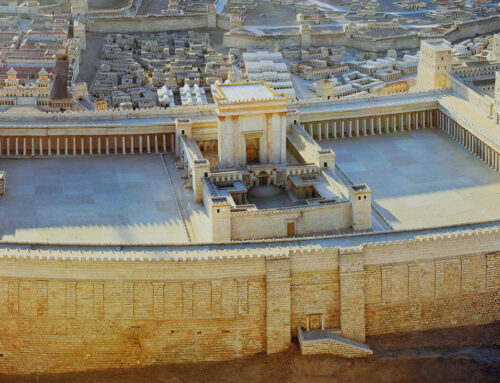Last week we examined the cause of David’s downfall into sin as recorded in 2 Samuel 11 (I encourage you to read it – click here for the article). But what is God’s perspective of the whole thing? How does God feel when we indulge in the passions and desires of our flesh – or when we simply turn within to source our own lives, rather than living in the source and flow of God within us? 2 Samuel 11.27 gives us a great point of view.
The unknown writer rightly said: “Sin will take you further than you want to go, keep you longer than you want to stay, and cost you more than you want to pay.” This was certainly true in the life of David. I wholehearted agree with W.G. Blaikie who exclaimed:
How ardently would most, if not all readers of David’s life have wished that the first verse of this chapter had been — “And David died, and was gathered unto his fathers; and his son reigned in his stead.” The golden era of his life has passed away; his sun has begun to go down; and what remains of his life is chequered with records of crime and chastisement, of sin and sorrow. What we now encounter is not like a spot but an eclipse; it is not a mere pimple that slightly disfigures a comely face, but a tumour that distorts the countenance and drains the whole body; of its vigour.
Such a “tumour” is the outcome of any time we source our own lives – when we turn within and live out of our own rightness and perspective (more more click here). What is fascinating about our passage, when we take a step back and analyze 2 Samuel 11-12 through a broad lens, we discover what is called a “chiastic structure.” While I was taught such things in seminary, I must confess that I rarely see such things unless pointed out. The following chiastic structure was uncovered by Dave Arnold (an old seminary professor of mine in his commentary on 1-2 Samuel). Simply, a chiastic structure is where a large portion of scripture, in this case 2 Samuel 11-12, parallels itself ending up with a focus.
Chiastic Structure: 2 Samuel 11-12
A1. David sends Joab to besiege Rabbah (11.1)
B1. David sleeps with Bathsheba, who becomes pregnant (11.2-5)
C1. David has Uriah killed (11.6-7)
D1. Joab sends David a message (11.18-27a)
E. The Lord is displeased with David (11.27b)
D2. The Lord sends David a messenger (12.1-14)
C2. The Lord strikes David’s infant son, who dies (12.15-23)
B2. David sleeps with Bathsheba, who becomes pregnant (12.24-25)
A2. Joab sends for David to besiege and capture Rabbah (12.26-31)
The Focus
If you notice, the focus of the entire chiastic structure is found in 11.27b: “But the thing that David had done displeased the Lord.” If you were to summarize and climax chapters eleven and twelve, it would be found in this verse. In fact, these two chapters must be read in light of this verse. Everything leading up to it (chapter eleven) is the explanation for the displease, everything after it (chapter twelve) is the result of God’s displeasure.
The Hebrew word displeasure means to tremble or quiver. Throughout the Old Testament it is often translated: displeased, grieve, sad, ill, or evil. Let me give you three quick examples of how this word is used, specifically in first and second Samuel.
Toward the beginning of 1 Samuel, Israel comes to the prophet Samuel to demand a king (they wanted to be like all the other nations). It says that this thing displeased Samuel and when he cried out to God about it, the Lord responded by saying “they are not rejecting you but Me.” It wasn’t that Samuel was merely unhappy about their desire for a king, the mere thought of it caused him to tremble within, it grieved him, making him sick to his stomach. In fact he saw the whole notion as evil. He was displeased.
Some time later, Israel, now with a king (Saul), is out in battle. David shows up, kills the giant and ends up becoming the praise of the people. It is reported that the people throughout Israel were dancing around singing “Saul has killed his thousands, but David his tens of thousands.” When Saul hears this, it says he was displeased. It wasn’t that he was just angry, but he was saddened, sickened, and stupefied. It made him want to vomit in the corner – he was sick of the whole idea of David taking his glory, and thus decided to get rid of David.
This word displeased ironically shows up earlier in 2 Samuel 11. David has had Uriah killed on the battlefield, and Joab sends a message to David to let him know it has been accomplished. The battle hadn’t been going as well as it should have so Joab tells the messenger: “If it happens that the king’s wrath rises … then you shall say, ‘Your servant Uriah the Hittite is dead also’ ” (11.20-21) – no doubt in hopes that it would brighten the king’s disposition. When King David is told the news about Uriah, whom if I may remind you is a best friend of David, he responds by saying: “Thus you shall say to Joab: ‘Do not let this thing displease you, for the sword devours one as well as another. Strengthen your attack against the city, and overthrow it’ ” (11.25).
Do you know what David told Joab? He said: “Hey Joab, don’t worry about it! Everyone has to die at some point, the sword takes one just like another. No big deal! Don’t worry. Don’t grieve. Don’t feel sick over the matter. What is done is done and I think it is all right. Don’t be displeased!”
Yet, a couple verses later it says that God was DISPLEASED with all that David had done. How was God feeling? He was trembling within, He was sick to His stomach – in fact He was ready to head to the corner and throw up. David’s sin made Him ill, sad, grieved, and He saw the whole thing as evil.
Do you realize that when we sin God doesn’t sit back and say “oh no big deal.” No! God is reeling with pain and agony over our sin. He is wringing His hands and crying out, “Why oh why?” He is displeased! It is not displeasure out of anger but a deep agony because of His love. His love was so measureless that He sent Jesus to take our place, endure a cross, so that He could come inside our lives to indwell and source us. Paul goes overboard in his epistles declaring that when God is within, we can’t sin. 1 John is strong on this theme as well. It is His desire that we do not sin – and He has made a way so we wouldn’t have to … Jesus!
Would you get out of your own sourcing, out of doing things your way, out of living your own life and instead allow Jesus to so capture you that He begins to source and live His life in and through you? This is what we call Christianity. May our lives no longer cause displeasure!
Read the other Bible Studies in this series:
The Downfall of David
The Rightness of 2 Samuel 11
A Chiastic Displeasure – 2 Samuel 11.27
You Are the Man – 2 Samuel 12.1-7
Despised – 2 Samuel 12.9
Disclosure of Material Connection: Some of the links in the post above are “affiliate links.” This means if you click on the link and purchase the item, deeperChristian will receive an affiliate commission (with no additional cost to you). It is a great way to support the work and ministry of deeperChristian. Regardless, we only recommend products or services we use personally and believe will add value to our readers. We are disclosing this in accordance with the Federal Trade Commission’s 16 CFR, Part 255: “Guides Concerning the Use of Endorsements and Testimonials in Advertising.”














